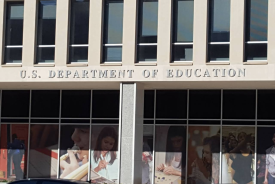Mary Willingham has become the whistleblower of the latest academic scandal at UNC-Chapel Hill, but she is now speaking up for herself since her work was called "flawed."
Willingham, a reading specialist at the University of North Carolina (UNC) at Chapel Hill, spoke to the Huffington Post Thursday about a week after the school publicly disputed her research.
"It's just the same response that we've been seeing here for the past 3 years," Willingham said. "We just can't seem to be fully transparent."
According to an article on CNN, Willingham's research found that, among a sample of UNC basketball and football players, eight percent were reading at a third grade level. More than half could not read above an eighth grade level and she even gave anecdotes of meeting student-athletes who could not read at all.
The school responded by suspending Willingham's research. Now, she may only request data by going through a review board, which she has already met with. UNC also released its own data that claimed to contradict Willingham's findings.
"I don't believe until we tell the truth that we can move forward," Willingham told the HP.
During a Board of Trustees meeting last week, UNC Chapel Hill chancellor Carol Folt admitted to another piece of the three-year academic scandal. She said the African and Afro-American studies department had been holding fraudulent classes since the mid-1990s. Folt only took office in 2013, but said the school is accepting responsibility.
The former head of the department Julius Nayang'oro is facing federal charges of academic fraud for teaching and authorizing several classes that rarely met, if at all, during a given semester. What's more is these classes were occupied by more than 50 percent student-athletes.
Many members of the UNC community have been outspoken in their criticism of Willingham's research, calling it "bashing" and defamatory. Former UNC football player and recent Johns Hopkins grad Matt Merletti told the HP Willingham's research is unfair to some students.
"Talking about being underprivileged and not being able to compete on an academic level, I think that problem comes much before college," said Merletti, "And I think that if you were sincere in trying to help these kids I just don't see how bashing our university and bashing our kids and humiliating kids is really doing good."
Willingham has maintained the issue is institutional and the school needs to acknowledge the problem to fix it and move forward.
"Let's help them," she said. "Let's give them the real help that they need. So that when they leave here, they'll have a real degree."
© 2026 University Herald, All rights reserved. Do not reproduce without permission.








